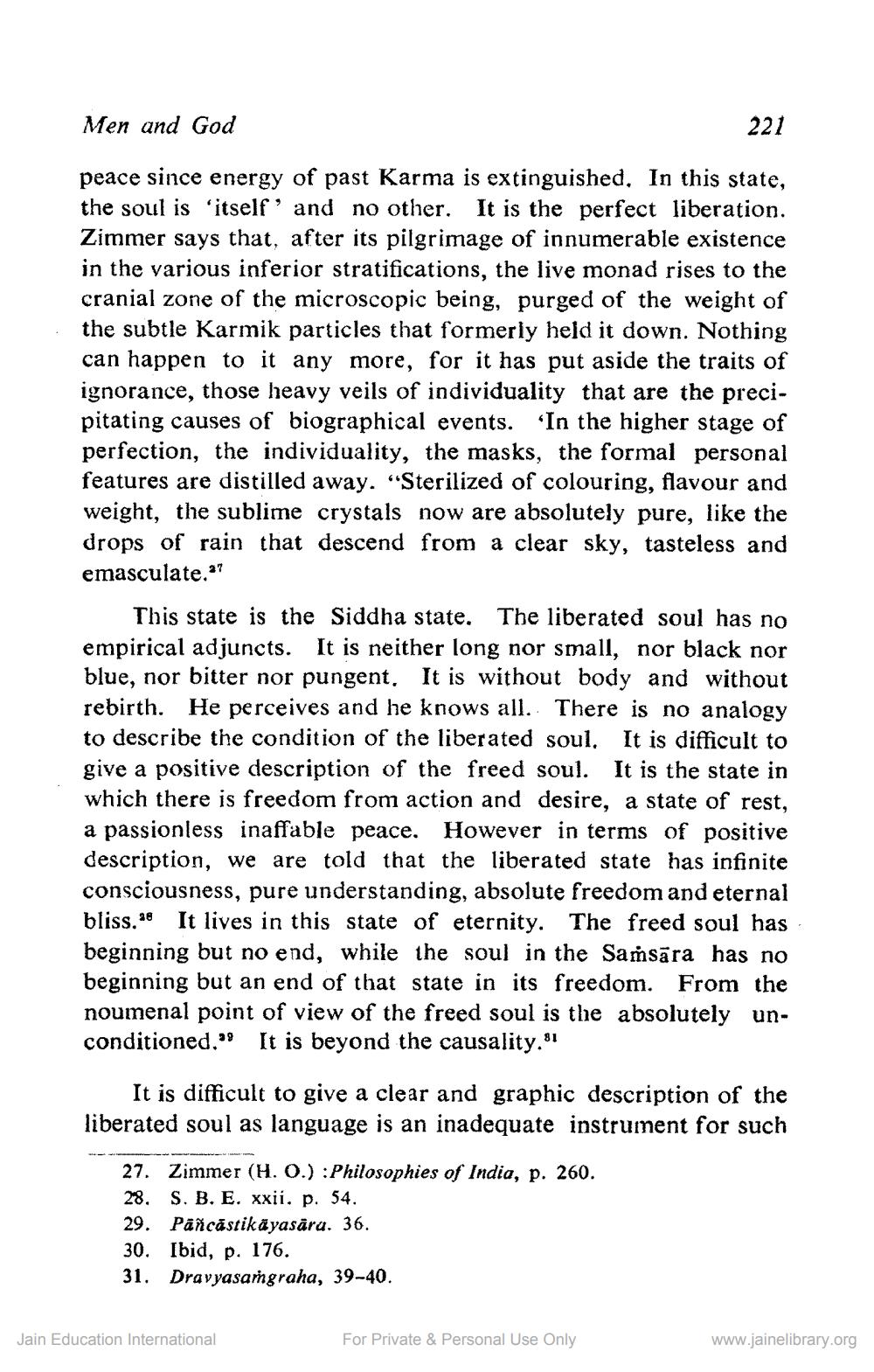________________
Men and God
221
peace since energy of past Karma is extinguished. In this state, the soul is 'itself' and no other. It is the perfect liberation. Zimmer says that, after its pilgrimage of innumerable existence in the various inferior stratifications, the live monad rises to the cranial zone of the microscopic being, purged of the weight of the subtle Karmik particles that formerly held it down. Nothing can happen to it any more, for it has put aside the traits of ignorance, those heavy veils of individuality that are the precipitating causes of biographical events. In the higher stage of perfection, the individuality, the masks, the formal personal features are distilled away. "Sterilized of colouring, flavour and weight, the sublime crystals now are absolutely pure, like the drops of rain that descend from a clear sky, tasteless and emasculate.""
This state is the Siddha state. The liberated soul has no empirical adjuncts. It is neither long nor small, nor black nor blue, nor bitter nor pungent. It is without body and without rebirth. He perceives and he knows all. There is no analogy to describe the condition of the liberated soul. It is difficult to give a positive description of the freed soul. It is the state in which there is freedom from action and desire, a state of rest, a passionless inaffable peace. However in terms of positive description, we are told that the liberated state has infinite consciousness, pure understanding, absolute freedom and eternal bliss.a It lives in this state of eternity. The freed soul has beginning but no end, while the soul in the Samsara has no beginning but an end of that state in its freedom. From the noumenal point of view of the freed soul is the absolutely unconditioned." It is beyond the causality."
It is difficult to give a clear and graphic description of the liberated soul as language is an inadequate instrument for such
27. Zimmer (H. O.) :Philosophies of India, p. 260.
28. S. B. E. xxii. p. 54. 29. Pañcästikäyasāra. 36. 30. Ibid, p. 176.
31. Dravyasaṁgraha, 39-40.
Jain Education International
For Private & Personal Use Only
www.jainelibrary.org




